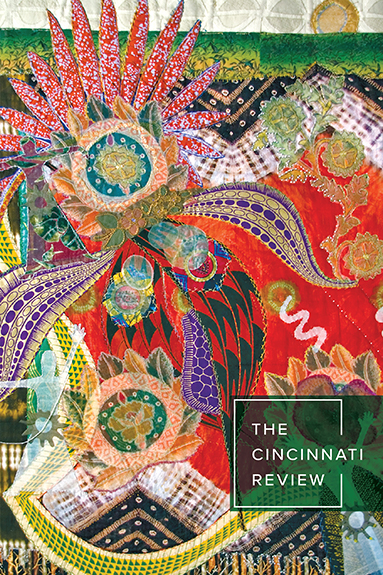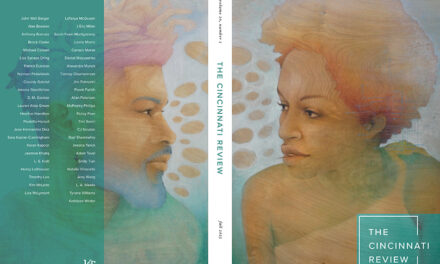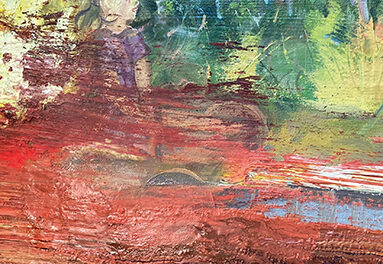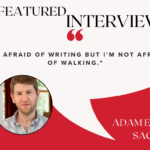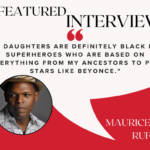When my father could no longer live independently in the home where I was raised, my brother and I cleared the place out and sold it. My brother claimed a bounty of bric-a-brac from the house, including two sets of dinnerware, a snowblower, and my mother’s wedding dress. Over and over again, he and his wife asked me if I wanted anything. They insisted on giving me the first choice of the spoils available as a result of my father’s dementia, but there were few things I had sentimental attachments to. In fact, on more than one occasion I wished the whole place had burned down, contents and all.
Rummaging through a lifetime of our family’s collections, finding papers and objects that had long been forgotten, I felt feverish flashes. Memories threatened to breach the levee I built to protect my children from the demons I inherited. His things—our things—were decades old and smelled: heavy wool coats, chunky computer keyboards, terracotta plant pots, and a set of World Book encyclopedias. They all had the suffocating scent of a cool chemical dampness, the tenacious miasma of neglect. Bringing warmth to such things, allowing them to see the sun, would set off a reaction that would blanch them.
* * *
Growing up, I often heard my father complaining about the money my mother spent. One Christmas night, my father cornered himself into a rage that required a deft stroke of genius to prove his point. He cranked open the damper in the chimney and started a fire. Once the flames were high and licking, he demanded my brother and I bring him our own presents to incinerate.
Obedient and panicking, I fled to my bedroom and filled a box with things that a six-year-old could spare, weighing it down with contents that were of no consequence: a few marbles, a coloring book, an old pair of socks. I refused to put anything precious inside the box and took my chances that my father would not open it before he threw it into the flames. Once my possessions started burning, amber and raven, curling and shedding, they gave off an unhealthy smell. Someone should have opened the windows and let the winter air blow the odor away, but my father urged us to watch, pointing at the fire like he did at his own aquarium, the tropical fish silently swimming by.
* * *
If the forecast calls for rain, my husband always reminds me to put my shovel away, to lay it down under the porch where it’s dry. He tells me that if water seeps in between the shaft and the metal collar, the wood can rot and the blade will come off. I’d have to get a new shovel, and he knows that would make me sad.
My shovel and I have become fast friends. The weight and length of it are perfectly proportioned to my own strength and height. In shovel terminology, it’s called a pointed digger. When required to make a deep hole, sever thick, hairy roots, or split perennials, my shovel never fails me.
I have used it to care for new plants like they’re tender babies, sprinkling black earth around them, careful not to harm or disfigure them. I have also used it to kill and scare things. Leveraging the shovel against an unwanted weed, I can hear the plant tear and rip, defenseless against the decisions I have made about its existence. There is little protection against those possessed of whimsy and weapons. I have wielded the shovel to drive out unwanted vermin and pissing cats from our property. My quick aggression alarms my husband and makes my children nervous, but the power of my anger fills them with admiration.
* * *
At the height of my father’s capabilities, the beauty of his garden became renowned in our neighborhood. The clusters of impatiens grew to an impossibly tropical size. The roses, heavily fragrant, might have been doused with French perfume. The snap peas hung off their vines, shiny and fat. Sometimes, strangers would make their way unannounced into the garden, hoping to admire its magnificence and have an audience with its curator.
Throughout my life, my father has shown disdain for others. Even as the recipient of admiration, for example in the case of his horticultural talents, he would offer only a thin impression of being good-humored. Full of flattery, but emptied of conversational acquiescence, he’d get irritated. In the end, we’d hear all about it, and he’d demand, “Next time tell that fool I’m not home.”
* * *
The first year I attempted to make my garden haphazardly glorious, I read somewhere that it was necessary to uproot the weeds early in the season to avoid their excessive proliferation. So when the branches were bare and the air was fresh, I pulled out anything I suspected would present itself as a verdant culprit. My husband accused me of getting rid of the phlox and black-eyed Susans. I was shameless in my defense, and now, years later, they remain markedly absent from our flower beds. I cannot bring myself to have a conversation with him about it. I do intend to replace them, to pretend they have arrived through the serendipitous work of squirrels or birds. My husband will notice. Hopefully he will not remind me of my wily ways.
With the tip of its blade secured in the ground, many times I saw my father lean his hands on top of the shovel’s handle. He’d survey his handiwork, consider the arrangements and proportions of things, then plan what needed immediate relocation to help a plant thrive. The shovel, one of the few things I took from his house, is a crutch, a tool, a comfort, and it is now mine. Weathered from my father’s use and grip, it helps us in exactly the same ways, encouraging what is wanted and eradicating what is not.
* * *
In 1959, my father immigrated to Canada to attend university. After graduating, he became a civil engineer and, later, an instructor at a community college in Toronto. Born and raised in Kingston, Jamaica, my father was, I imagine, a very different man in his youth, someone whose arrogance made those around him daring also. He tells me his brother—who ended up with a reputation that made people snicker and a wife who is rumored to be a skinny and skilled philanderer with a complexion close to mine when I am honeyed and caramel from the sun—was a genius. But he also shot a cow on purpose after hitting ten cola bottles in a row, glass spraying in fistful bursts, the boys in their dusty school uniforms saying in their patois, “Look, nuh! Chai-ni-man ta’e da pistol firs’ time! Firs’ time in ’im han’! An’ bam! Bam! Bam!” Thereafter, my uncle was nicknamed “Chai-nie Gunnyman.” The Chinese Gunman.
As teenagers, my father and his brother possessed a cockiness born from suffering and survival. Fatherless and proud, these young men had to park their anger in their ego, pursue adventure or risk losing themselves. They found escape under cloud formations that mirrored the shade of surrounding trees. They answered the call to climb the seaweed-blue range of the mountains.
* * *
Teaching engineering, my father often brought his work home. He would spread out his students’ design drafts on the dining-room table and bend over them with careful scrutiny. I would study my father’s face when he wasn’t looking. I couldn’t distinguish his features, the definition of his lips, the expression of his eyes. They were blurred by something; he seemed to me on the verge of weeping. How long ago was my father a child? A teenager? Where does he go in his memory before my brother or me or my mother or Canada? It seemed impossible for him to time travel, impossible for him to look back and safely return to the present.
* * *
“Shavin’ soap na ladha in da col’! Da moun’ain air suh col’!” In 1953, my father would have been sixteen. Whatever whiskers he was shaving would have been a few wisps, feathers of his emerging manhood. Bravado, if raised in poverty, bloats and becomes legendary.
Queen Elizabeth would have been more than ten years his senior and just on the throne when she was escorted on a private tour of Blue Mountain. Not unaccustomed to traversing the sodden highlands of her ancestral estates, the Queen trod up and over the Caribbean with remarkable nimbleness in hopes of finding some privacy away from her scheduled protocol of duties. Whoever arranged her attire had done so at her request. A light blouse, a loose skirt, and sturdy shoes. She refused to wear stockings on that day.
My father, having spent the night atop the mountain, was making his way down with his ragtag group of ruffian, gun-shooting friends when they collided with the Queen’s entourage. Due to the inhospitable conditions that prevented the soap from lathering, my father hadn’t shaved.
As he tells it, the Queen spied my father in the pack and instructed her aides to detain him. The others were hurried away. There might have been a bustle of concern as his friends took flight at the white men’s angry commands. They might have mocked the starchy men, their pointy walking sticks, and their gleaming metal weapons. They might have held onto my father, protecting him by pumping their skinny arms in the air, kicking up dirt with their worn and ill-fitting shoes. Knowing their dialect of patois would be indecipherable, they might have sung profanities in the glare of such tight British civility and laughed all the way down to the base of the mountain. Either way, my father was left alone with a familiar stranger: “You can call me Elizabeth.”
Then they had sex.
* * *
When I relay this story to my friends, they like to consider the real possibility of this erotic encounter. Some people have questioned my father’s taste in women. I laugh it off as a demented old man’s fantasy, his feeble mind finally an open passage to the past, albeit full of fairy tales. Yet before my father’s sense of reason completely collapsed, in rare moments of tender reflection, he would remark on how my mother resembled the Queen.
. . .

